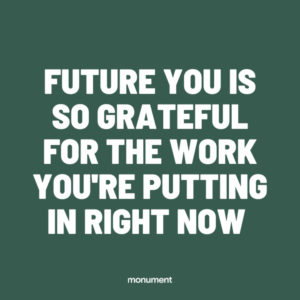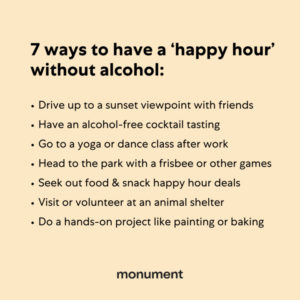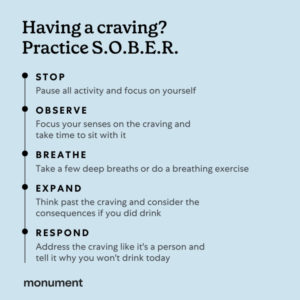Completing 30 days without alcohol is a huge accomplishment and it’s within your reach. In 2024, 25% of US adults who regularly drink alcohol completed the Dry January challenge. Whether you’re participating in a sobriety challenge like Dry January or Sober September, cutting alcohol out for good, or somewhere in between, there are certain changes you might expect during month one of sobriety. Of course, everyone’s experience will be somewhat different. But knowledge is power, and to help set expectations, I’ll be sharing some common experiences I’ve seen with my recovery coaching clients, and in my own sobriety journey.
It’s also vital to consult a medical professional before you stop drinking. Alcohol withdrawal is a serious medical concern, and you should make a plan with your physician to ensure that you can start cutting back safely.
What Are the First 24 Hours Without Alcohol Like?
The first 24 hours alcohol-free, also known as ‘day one,’ can be challenging, scary, and motivating all at once. Physically, you may experience acute withdrawal symptoms, which can occur within one week of quitting alcohol. These uncomfortable symptoms can include:
- Headaches
- Nausea
- Anxiety
- Cold sweats
- Mood swings and irritability
- Unquenchable thirst
Acute alcohol withdrawal symptoms can range from mild to severe, and the severe symptoms can be dangerous or even life-threatening. That’s why that initial physician consultation is so important, and with Monument, you can see a physician using your existing health insurance. Prices for visits are completely transparent and you’ll be told upfront what the cost will be based on your specific insurance.
On the emotional side, many people experience a strong self of resolve in the first 24 hours. Thinking thoughts like “that was my last drink” is common, and the good news is – that truly can be the last time you drank. There can also be a mix of anxiety and excitement when anticipating the journey ahead. It’s completely normal to feel a wide range of symptoms and emotions at the start of 30 days without alcohol. Reaching out to a sobriety community or speaking with a specialized therapist can help you feel supported and encouraged as you begin this rewarding experience.
The First Week Without Alcohol
Day 2
Sometimes the second day can be even harder than the first, because many of the physical symptoms remain, yet that previous excitement around the initial decision not to drink may be wavering. This is natural, especially because you may start experiencing alcohol cravings at this time. There are lots of tools to help curb cravings, including medication to stop drinking. Seeking out sobriety tools can help you get through urges without relying solely on willpower.
Day 3
During these first few days of sobriety, you may have trouble sleeping. Night sweats, insomnia, and frequent sleep interruptions are to be expected. These sleep disturbances occur because your body is adjusting to the absence of alcohol. Soon you’ll be on your way to more restful sleep, but in the meantime, developing a relaxing alcohol-free nighttime routine can help minimize discomfort.
Day 4
By the fourth day of sobriety, many of the physical symptoms of acute withdrawal may start to subside. (Reminder: withdrawal can be dangerous, and you should speak to a physician before cutting back.) However, other symptoms may linger for weeks or even months, which can be a sign of post-acute withdrawal syndrome (PAWS). You can learn more about PAWS in this alcohol recovery timeline. No matter the duration of your withdrawal symptoms, know that they will pass.
Day 5
It’s likely the past few days have been challenging as your body is healing from the effects of alcohol. There may be some thoughts like “do I really have to do this for 25 more days!?” Remember that it will get easier, and you only have to get through one day at a time. Social gatherings may seem like too much right now, and it’s okay to give yourself some extra rest and time to heal.
Day 6
By day 6, you’re likely to have experienced some fluctuation in your mood and motivation. Your mental health can also be affected in the first week of sobriety. You might experience mood swings and intense emotions that alcohol was previously numbing. Engaging in alcohol therapy can help you work through these feelings with expert guidance.
Day 7
Making it through the first week is an amazing achievement – go you! The worst of the physical symptoms will most likely be behind you, and you’ll have made it through a weekend without drinking. You may have also had to say no to alcohol when in a social situation, which can be really hard. Soak up the feeling of accomplishment!

The Second Week Without Alcohol
Day 8
Okay, one week down. As you spend less time and energy managing physical symptoms, you may be wondering – what do I do with all this free time I used to spend drinking or recovering from drinking? Feelings of boredom are common around this time. Finding fun alcohol-free activities can help you distract yourself from alcohol cravings and build new routines.
Day 9
You might encounter feelings of restlessness or irritability around this time. The road ahead might feel long. When these feelings come up, it’s a great time to connect with others who are farther along in their journey, whether locally or through online support groups.
Day 10
Around day 10, you might experience your first full night of quality sleep. You might realize you’re having more dreams than you did before, and waking up feeling more rested and energized. If this doesn’t happen for you at this time – don’t worry. Everyone’s recovery from alcohol looks different.
Day 11
By now you might be feeling great in the mornings, have less alcohol-related anxiety, experience more mental clarity, and feel a deeper sense of appreciation for waking up without hangxiety or shame.
Day 12
While this is often a time people experience much higher quality sleep, it’s also common to have vivid dreams of drinking alcohol and wake up disoriented. Dreaming about alcohol is a totally normal part of any sobriety journey.
Day 13
Alcohol cravings may continue to arise well into week 2 and beyond, and are likely to be strongest at a particular time each day. Try to schedule a rewarding activity for this “witching hour” timeframe. Each time we make it through an alcohol craving, we get stronger. We realize that these cravings will subside naturally on their own.
Day 14
Another week down! You rock. While everyone’s timeline is different, many people start to feel the benefits of sobriety more fully with two weeks down. If this is enough motivation to take you into week 3, that’s great. If you’re feeling like you can use some encouragement heading into the second half of the month, you’re not alone. Check in via a support group or with your therapist.

The Third Week Without Alcohol
Day 15
By the start of three weeks without alcohol, it’s likely you’ll have developed new ways to fill the time you once spent drinking. Maybe you’ve picked up a new workout routine, daily journaling practice, or started a new podcast. Having activities to look forward to is a big step in recovery.
Day 16
In addition to healthier activities, at this point, you’ll likely enjoy a more normal appetite. It’s common to maintain a more steady diet in sobriety, instead of skipping breakfast the morning after drinking, for example.
Day 17
Many people report less intense alcohol cravings during this timeframe. However, it’s worth mentioning that alcohol cravings can be replaced with cravings for sugar. Many alcoholic beverages are high in sugar, and your body is still in recovery mode. While turning to sugar instead of alcohol is okay in the short term for most, you should work with your physician and therapist to identify healthier ways to cope with cravings.
Day 18
Day 18! Keep up the nice work. Speaking of work, you’ll likely experience increased productivity and concentration at whatever it is you’re doing, whether that be working, studying, or reading.
Day 19
By this time, it’s likely you’ve seen a few of the people closest to you (friends, family, coworkers). Without the influence of alcohol, you might notice that you’re arguing less, and can have more authentic conversations. If you’re still feeling irritable, or if you’re not on the same page as your loved ones, that’s okay too! That’s also common, and a great topic to discuss in a support group.
Day 20
Did you find the fountain of youth?! Probably not, but with almost 3 weeks of sobriety behind you, you may feel – and even look – rejuvenated. Often our skin improves as a result of cutting alcohol out of our lives, including fewer bags under our eyes. Just one of the many reasons to love sobriety.
Day 21
Each week feels like a milestone, and this week might feel like your best one yet. You may feel a boost in your overall wellness and satisfaction with life. 21 days is a major accomplishment, and something to be really proud of.

The Fourth Week Without Alcohol
Day 22
Alcohol causes inflammation, and it can take a few weeks for this side effect to wear off. By the fourth week, inflammation-related symptoms may improve, and you might notice a slimmer face, reduced bloating, and less joint pain.
Day 23
You may still feel post-acute withdrawal symptoms like anxiety and fatigue. This is totally normal as your body adjusts to its new normal without alcohol. Post acute withdrawal symptoms can persist on and off for weeks or even months.
Day 24
It’s possible that you may experience a setback somewhere throughout your journey, whether it’s a few weeks in, or a few months down the road. It’s important to remember that setbacks don’t erase progress, and to re-engage with your support systems in order to combat complacency. And if you do drink one day, remember that a 96% sober month is still pretty amazing.
Day 25
Time to check in with your doctor, perhaps? Health improvements can be super encouraging. Getting your liver or blood pressure checked by your doctor can help you feel motivated to continue the journey of recovery, and reduce long-term effects of alcohol on the body.
Day 26
Perhaps a weekend falls on day 26. You might realize that you look forward to weekend mornings now instead of dreading hangovers and hangxiety. Spending quality family time or pursuing our hobbies becomes much more fulfilling than alcohol use. Now you can check out the farmers’ market, go on a long walk, or make some progress on that DIY project.
Day 27
You might feel a surge of excitement that you’re so close to achieving your goal of 30 days of sobriety. Take time to look back and reflect on how far you’ve come! Journaling can be a great way to document the ups-and-downs, and learn from your past experiences.
Day 28
With almost 30 days sober, you might start looking ahead, too. You might think: “I like how I feel now. I should stay sober.” You might also think, “Good to know I can do this! Should I go back to drinking, with this new perspective?” All of these thoughts are normal. This is a great time to imagine your ideal self, and reflect on your values and goals. Working with a therapist can be especially helpful in identifying next steps.
Day 29
After contemplating your future with alcohol, you might also experience stronger than usual alcohol cravings. You can get through them! Learn on the strategies that have worked for you in the past to get through these urges.
Day 30
You did it! Day 30 is a monumental accomplishment. You’ll have navigated some obstacles, started exploring new routines, and expanded the tools in your sobriety toolkit. You feel better mentally and physically, and proved that you can do hard things. Remember to take time to reflect and relish in your incredible progress.

Tips for the First 30 Days of Quitting Drinking
Here are a few steps you can take to give yourself support and guidance throughout a month without alcohol.
- Join a recovery community like Monument
- Work with a physician to discuss your plan to cut back in order to avoid potentially dangerous withdrawal symptoms
- Consider expert-led online alcohol treatment to help guide your journey
- Be kind to yourself – if you find yourself indulging in other ways, that’s okay!
- Discover tools to help you combat cravings
- Seek additional support from a Monument therapist
- Listen to a sobriety podcast
- Stay active and go for walks whenever you need a reset
- Read books about quitting drinking
- If you’re tired – rest. It takes some time for the body to adjust to these changes
- Keep a journal – reflect on your physical and emotional wellbeing throughout the journey
What Happens After 30 Days Without Alcohol?
After a month of sobriety, you might start to consider if abstinence or moderation is right for you. Reflecting on what you discovered over the last 30 days and working with a therapist can help you determine what next steps are right for you. And remember, you’re not alone in your recovery journey. Some people choose to explore moderation, and others decide to continue with total abstinence. Keeping the alcohol withdrawal experience in mind can motivate you to build upon existing progress so that you don’t have to go through those symptoms again.
Additional benefits and suggestions for maintaining momentum in your sobriety journey:
- Enhanced Mental Clarity: Beyond the one-month mark, continued abstinence or moderated drinking can lead to sustained improvements in cognitive functions, including sharper concentration, improved memory, and better problem-solving abilities.
- Strengthened Physical Health: Sustained sobriety contributes to long-term physical health benefits such as stabilized blood pressure, improved liver function, and a lower risk of alcohol-related diseases.
- Developing New Hobbies: With alcohol no longer occupying your time, this is an opportune moment to explore new interests or revisit old hobbies you may have neglected. Engaging in activities that bring joy and fulfillment can enhance your quality of life.
- Building a Supportive Network: Cultivating relationships with sober peers or those who support your sobriety can provide ongoing encouragement and accountability. Consider joining additional support groups or sober social networks.
- Reflecting on Personal Growth: Take time to reflect on the changes you’ve noticed in yourself over the past month. Journaling about your journey can provide insights into your personal growth and help set future goals for your relationship with alcohol.
Life continues to get better as we heal and move along our paths of recovery, whatever that looks like to you. All of life’s problems don’t go away, but we are much better equipped to handle them.
